When you pick up a faux Louis Vuitton bag online or at a souvenir shop, do you ever wonder where your money goes? We followed the money to find out what happens to the revenue from counterfeit goods. The myths and realities surrounding the counterfeit market may shock and surprise you.
Myth: Buying counterfeit bags is a victimless crime.
Reality: Counterfeit handbags and accessories may be an inexpensive way to wear the latest luxury bags and trendy accessories. But fakes are the scourge of luxury brands who invest vast amounts of time and money protecting the integrity of their goods with varying amounts of success. In addition to intellectual property theft, brands maintain counterfeit products are inferior to the originals, and most of the time that’s true. However, there’s another reason to reconsider purchasing a counterfeit bag, however chic it may look. While the price of the bag may be comparatively low, the money paid will most likely end up funding organized crime, human trafficking, or terrorist activities around the world.
In 2016, the International Chamber of Commerce addressed the United Nations Counter-Terrorism Center (UNCCT) to discuss the growth of terrorist financing via counterfeiting and organized crime. ICC director Jeffrey Hardy said “Organized crime has deliberately and in great numbers moved into trademark counterfeiting, and copyright piracy – largely due to high profits, low risk of discovery and inadequate or minor penalties if caught, and what started out as a business model for organized crime has now also become a way to finance terrorism.”
Myth: Sales of counterfeit goods don’t amount to that much anyway.
Reality: In May 2019, analytics company Ghost Data studied the level of fake luxury products being sold on the social media platform and found that more than 56,000 accounts were found to be linked to the luxury counterfeit industry. In 2016, the figure was just about 20,000. Ghost Data also reports that the most popular fakes on social media sites are Louis Vuitton, Chanel, Gucci and Nike. The market for counterfeit goods generates an estimated $1.3 trillion dollars and costs luxury brands over $30.3 billion. The counterfeit market has been described by experts as “an enormous business hydra.” If law enforcement, customs agents or border control agencies cut one head off, they find two more in its place. The money counterfeiters make from selling fake goods, online, on the street, from the trunks of cars or tiny storefronts on Canal Street costs governments billions of dollars in tax revenue.
Trafficking in counterfeit goods is attractive because it’s a quick way to raise a lot of money.
Myth: Buying a counterfeit bag hurts luxury sales, but it’s can’t really fund terrorists.
Reality: Investigators have been able to link terrorist attacks to counterfeit goods as far back as the 1993 World Trade Center bombing, the 1996 Atlanta Olympic Games, the 2004 Madrid subway bombing and most recently the 2015 attack on the offices of Charlie Hebdo. Trafficking in counterfeit goods is attractive because it’s a quick way to raise a lot of money. International law enforcement, trade organizations, intellectual property watchdogs, and the United Nations all know terrorist groups fund their endeavors by selling counterfeit luxury goods and are working to stop it.
Background: The Charlie Hebdo terrorist attack was funded by the sale of counterfeit goods.
In January 2015, after the satirical French magazine recently published a picture of the Prophet Muhammad on its cover, two brothers, Chérif and Saïd Kouachi, burst into the magazine’s Paris office and killed 12 people, including a police officer, and injured 12 others. They were caught and killed in a shootout with police.
French authorities later discovered that the brothers, who had connections to several Islamic terror groups, funded their attack by buying and distributing counterfeit goods, including sneakers and cigarettes. According to a report in FinExtra, Cherif Kouachi bought 8,000 Euros ($8,700 dollars) worth of counterfeit items from China, paid for it via Western Union, and then sold them online in France. Several reports also note that the brothers were selling drugs to fund the attack, but moved to counterfeit goods because they are much easier to sell and don’t carry the same harsh penalties if they’re caught. In fact, French authorities had been monitoring the brothers’ activities for three years but stopped in 2014 when they could find no trace of illegal activity other than selling counterfeit trainers, which at the time was not considered a potentially dangerous criminal activity.
Myth: Nobody really knows who these counterfeiters are or where they are.
Reality: International law enforcement is taking on counterfeiters with a variety of methods including new technologies, artificial intelligence and old fashioned shoe leather.
A leader in the field is Dr. Louise I. Shelley. She’s an expert on the relationship between crime and terrorism, a professor at George Mason University and author of numerous articles and books on the subject, including “Dirty Entanglements: Corruption, Crime, and Terrorism” and “Dark Commerce.” Shelley says that when a customer buys a counterfeit handbag, they have more contact with what Shelley terms ‘dark commerce’ than they may realize. The market for counterfeit goods is rising as more and more traffickers turn to technology such as text and social media apps to market goods and transfer cash.
In the December 2017 issue of the NATO Review, Shelley emphasized that proceeds from counterfeit goods help fund not only terrorists but help prop up corrupt regimes: “The Syrian conflict, like many others in the world, has been financed, in part, by illicit trade,” she wrote. “This illegal cross-border trade is dependent on corrupt officials. Smuggling of drugs, humans, oil, antiquities, cigarettes, and other contraband has provided funds to buy weapons and sustain fighters both of President Bashar Al-Assad and of rebel and terrorist groups.”
Counterfeit investigator Alastair Gray has been chasing counterfeiters for more than a decade and has seen counterfeit producers first hand. He’s gone undercover investigating and busting up counterfeit rings around the world, and knows counterfeiting is big business. “These are not street thugs; these are professionals,” he says. “They fly first class.” Gray says the damage that’s possible with the trillion-dollar underground economy is frightening. “Fakes fund terror,” he said. “Fake trainers on the streets of Paris, fake cigarettes in West Africa, and pirate music CDs in the USA have all gone on to fund trips to training camps, bought weapons and ammunition, or the ingredients for explosives. So whatever you think, this isn’t a faraway problem happening in China. It’s happening right here.”
Terrorists are selling fakes to fund attacks, attacks in our cities that try to make victims of all of us.
“What the tourist on holiday doesn’t see about those fake handbags is they may have been stitched together by a child who was trafficked away from her family,” says Gray, who know works with Tommy Hilfiger. “In his popular Ted Talk he says that counterfeiting is not a victimless crime. “Terrorists are selling fakes to fund attacks, attacks in our cities that try to make victims of all of us. You wouldn’t buy a live scorpion, because there’s a chance that it would sting you on the way home, but would you still buy a fake handbag if you knew the profits would enable someone to buy bullets that would kill you and other innocent people six months later?” he asks. “Maybe not.”
Myth: Nothing can stop counterfeiting.
Reality: Counterfeiting can be slowed down.
Experts agree that both luxury brands and their customers can and should take an active role in halting the flow of counterfeit goods that fund illegal activities. Consumers can be careful about where and from whom they purchase luxury goods both online and in person. Brands understandably cautious about entering the secondary market and reselling goods themselves or through channels like The Real Real should consider it one way to stop the flow of goods that both damage their brand and fund terrorism, trafficking, and crime.
However there are experts who believe that luxury brands should invest in increasing their presence in the secondary market either via direct sales or partnerships with certified resellers, it could eventually regulate the resale market. Building confidence in the secondary market could work to lower the number of counterfeits sold, protect their brand, and give customers a more reliable option for obtaining legitimate goods at reduced prices. The Harvard Business Review suggests bringing outsourced manufacturing back home to its founding countries. HBR says this would help brands keep tighter control on production and overruns while and emphasizing the heritage craftsmanship and real value for money.

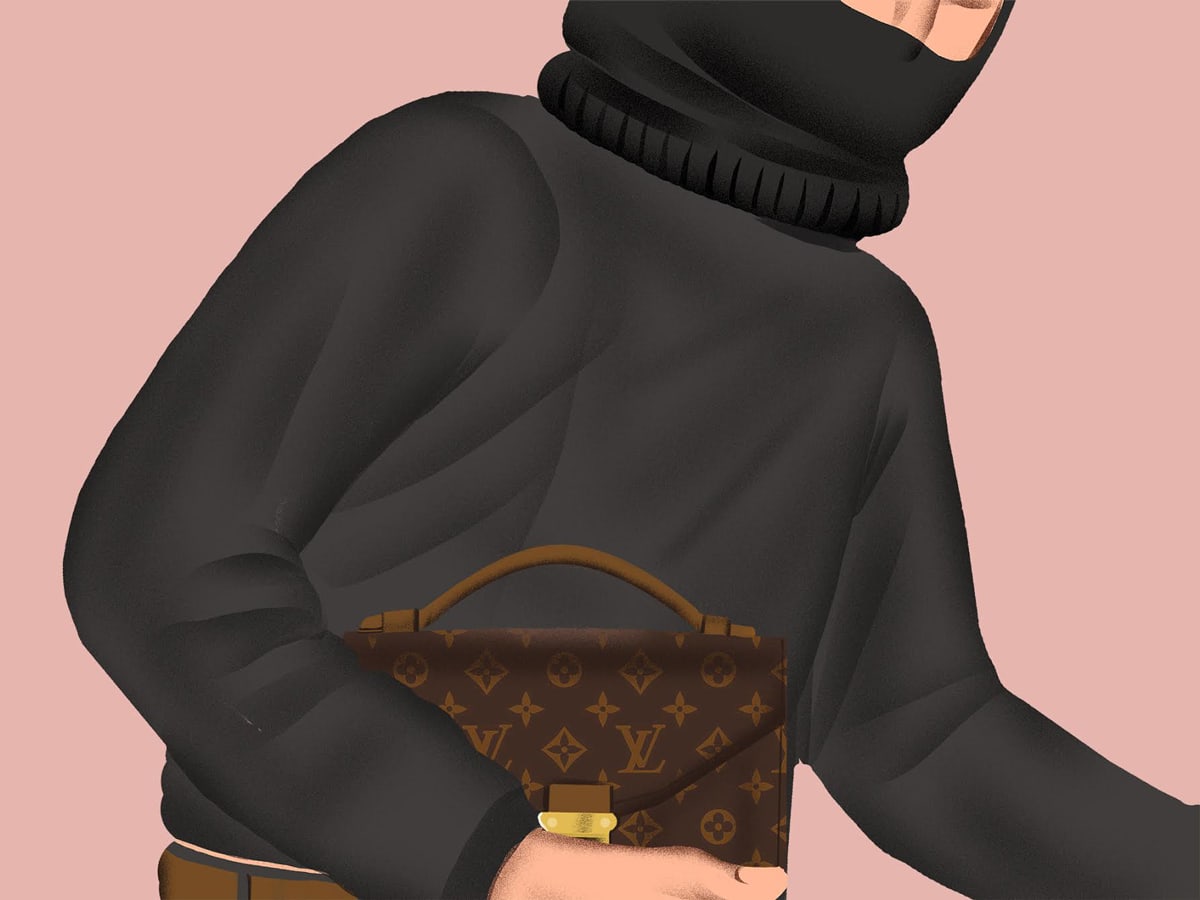

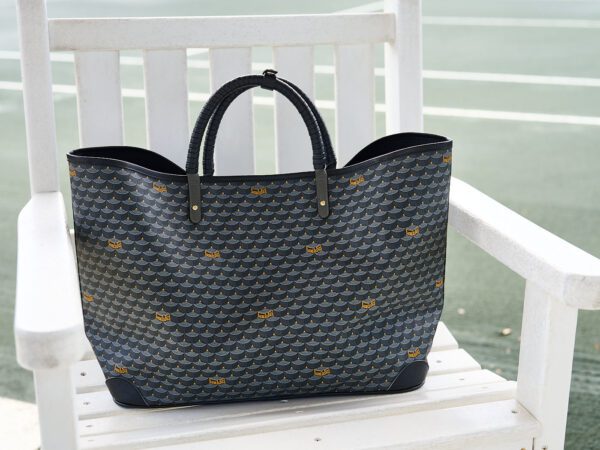
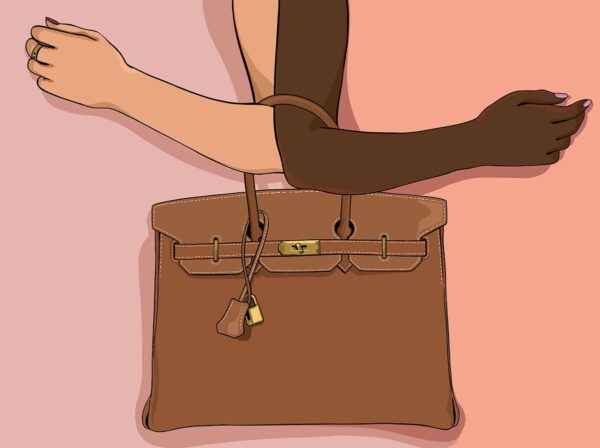
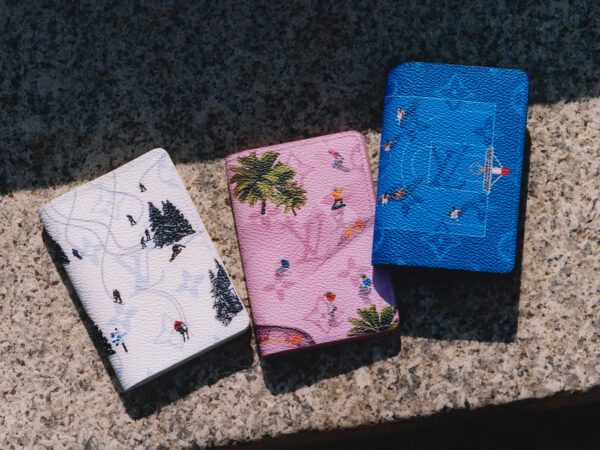
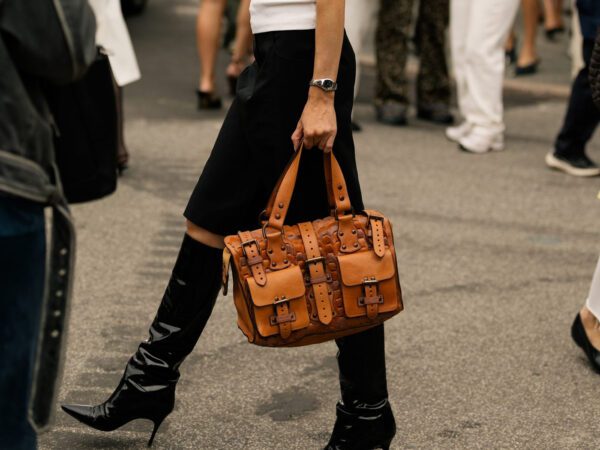
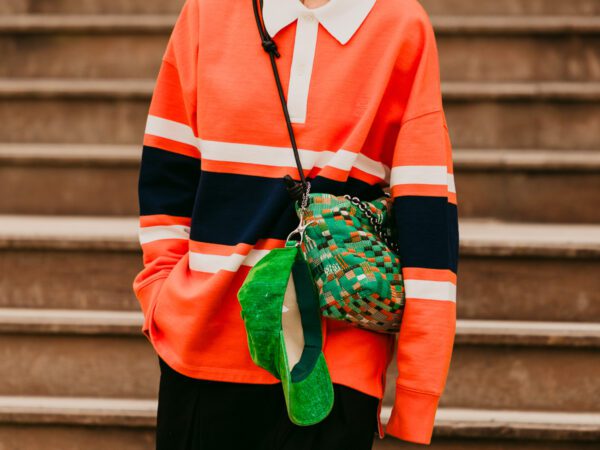

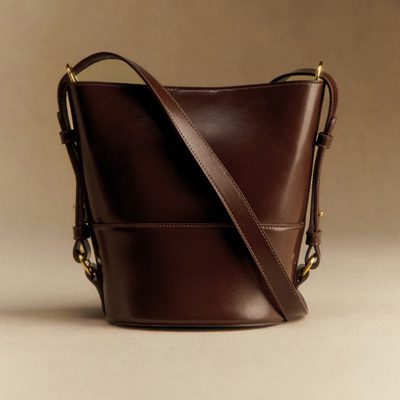

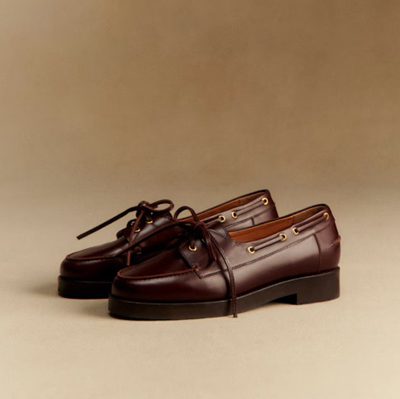
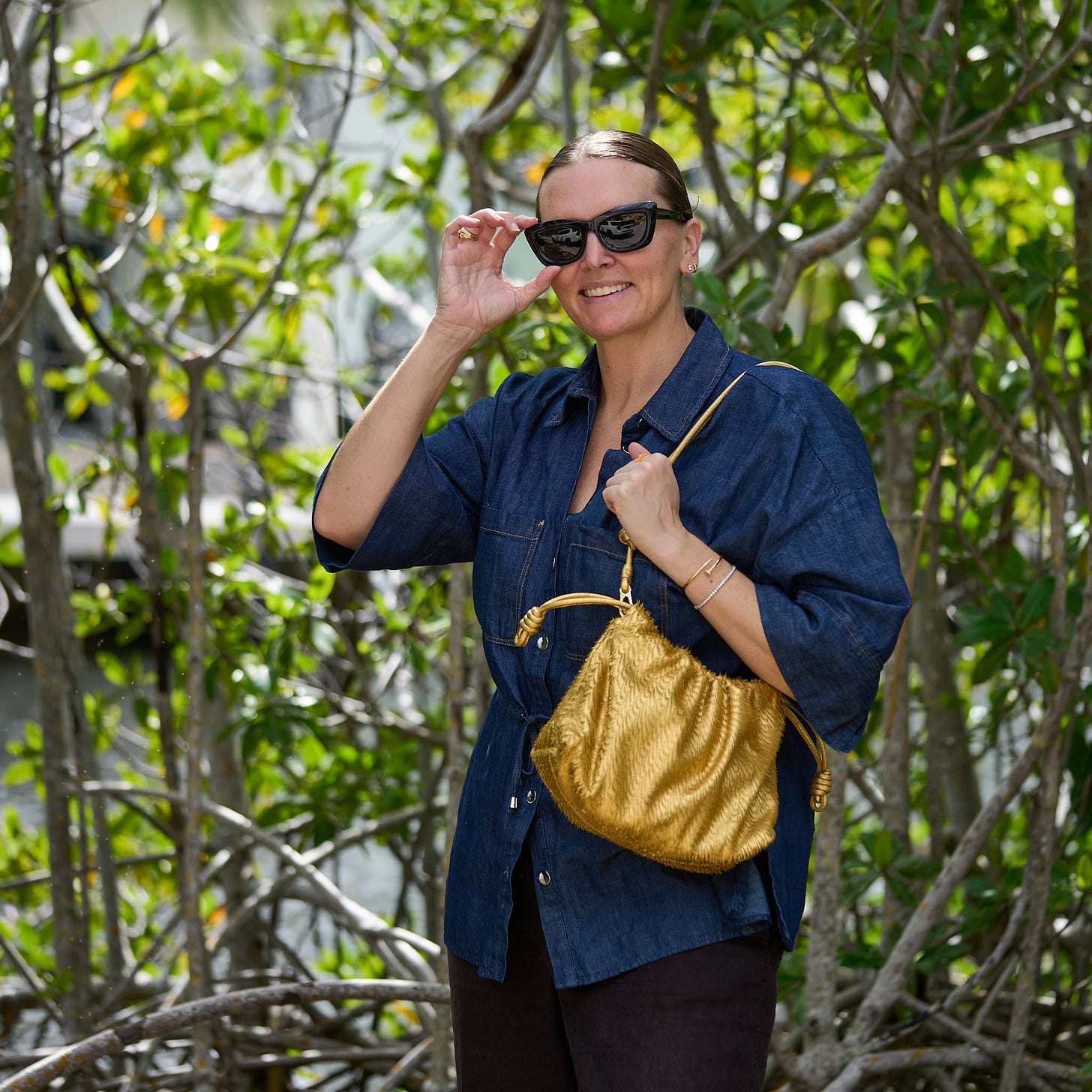
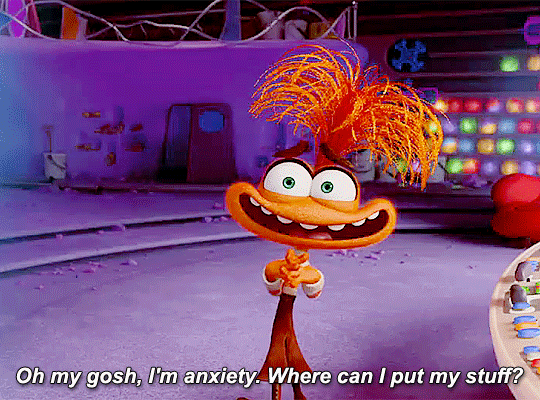
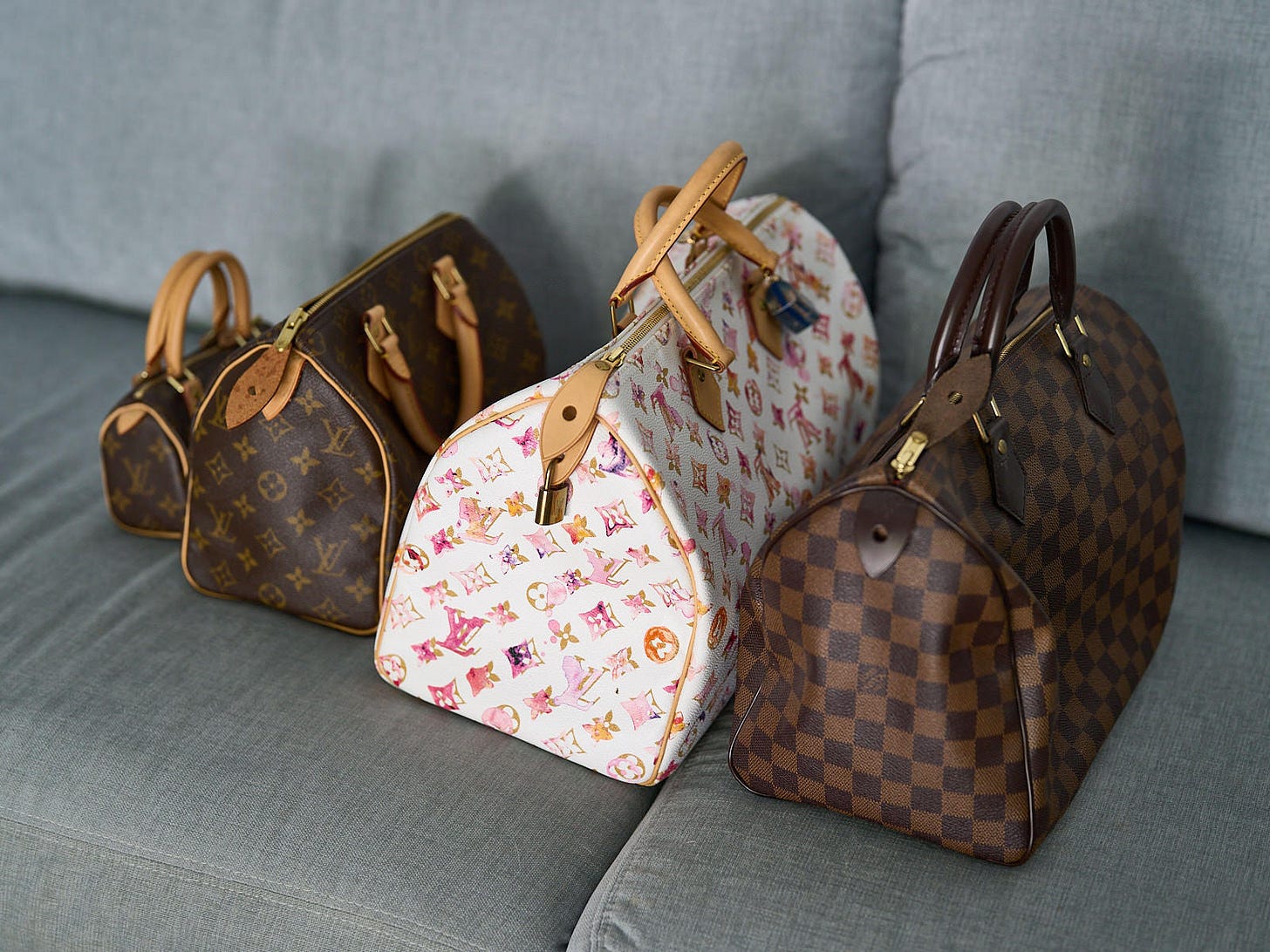

So the issue I have with this article is that it does not ever actually link the production of counterfeit merchandise to terrorism. It links the SALE of that merchandise from a producer to a middle man, to a consumer, where the middle man is the terrorist (or other criminal). Can you please specify here (in case I missed it) where the factories producing counterfeit goods (in China as referred to up top) are responsible for the terrorism linked to the sale by other parties of those goods? It seems to me that the terrorists are responsible for the terrorism, not the factory workers or even owners just selling their product, however illegal from a copyright infringement perspective that product might be (which is its own issue).
I am not a fan of anyone counterfeiting anything, but there are people in other countries who are happy to have a job doing ANYTHING, and plenty of factory conditions are not only acceptable, but better than those of some high-end luxury retailers. I think to connect those people who are just doing a job hand-making something that they might even be proud of (!) or a business owner just trying to make it in the world (not honorably so but neither is knowingly manufacturing toxic goods to sell to consumers that can give them cancer) is erroneous as they are not responsible for who all the buyers are that flip that merchandise and sell for a profit (indeed no doubt some to fund terrorism). The black market is the black market and will exist regardless of what it sells at any given time. Today maybe sneakers and handbags, tomorrow a new snake oil. Better to focus on eliminating terrorism IMHO.
My guess? Luxury bag companies are concerned that their buyers don’t want riff raff carrying the same things at a fraction of the prices. Before the advent of the superfakes, the fake ones weren’t even interested in looking real that it was laughable. Now the superfakes are so well-made, it requires professional authenticators to examine them, and even these authenticators’ accuracy is not a guaranteed 100%. Oh crap, quelle horreur!
Luxury goods companies needed to think up something fast to make it seem like a huge no-no to buy fake bags. Hmmm what would make it appear the most unconscionable to buy fake bags? Lightbulb! Terrorism and child labor. The proof is as thin as the tissue paper filling the luxury bags, but who cares? These people aren’t actually going to research to see if all the atrocities are closely connected to fake bags. Et voila! Everyone is screaming terrorism human trafficking etc etc… There is something funny about credibility: if you are found to be stretching the truth just enough to make it sound terrifying, so you are not technically bold-face lying, your credibility starts inching toward ‘questionable’.
Your “guess” is borderline ludicrous! What a ridiculous conclusion based on absolutely no evidence, but purely conjuncture on your part! ?
I think you mean conjecture not ‘conjuncture’ lol. I use logic based on an official report published by the US Treasury Department.
What on earth is “conjuncture” and what’s with the aggression? I use logic, with which you’re clearly unfamiliar ?. Poor angry soul…
All truly excellent points.
Forgot to add that I always enjoy reading your comment!
Forgot to add that I really enjoy reading your comments!
LOL someone actually downvoted us saying something nice to each other. I cringe that this level of crazy is walking the streets amongst us.
Wasn’t me – really enjoying everyone’s views (well-researched ones at that)!
I would never think it would be you! I know you love when we all get engaged in a fun topic (even though I know sometimes it turns a little negative :))
OMG I am oddly flattered that my little existence here makes enough impact that someone actually followed all my comments to downvote LOL. We have arrived, sister! Power to truth, facts, logic, and sense of humor! And those people who think we are defending purchasing of fakes instead of criticizing dishonest PR tactics, bless their ignorant hearts.
Yes! Being hand selected by the overly pious selective moral outrage shooting squad is a badge of honor! If only such things could result in incarceration!
Likewise!!!
Leave it to Purseblog to make me comb through a 32-page government document to see for myself if fake bag business actually funds terrorism. Conclusion? Zero mention of fake bags. https://home.treasury.gov/system/files/136/2018ntfra_12182018.pdf
So the Hebdo murders linked terrorists selling cheap fake bags on the sidewalk. Buyers can easily counter that by saying they only buy superfakes, which have no known links to terrorism.
Just say it is not right to buy stolen designs and trademarks. Or that only the real things make you feel like a million bucks. But if you try to force an issue by pretending that terrorism is at the base of fake bag businesses, you are the one exaggerating ridiculously.
But where did they say that “terrorism is at the base of fake bag businesses”?
I clearly said “pretending that terrorism is at the base of fake bag business”, and qualified it with “if”. How on earth did you understand this as a verbatim quotation?
Yes, but it was implied that you were referring to PB given that you said that they incorrectly attributed the treasury report. So who is “you” in your last paragraph if not PurseBlog? You are implying that that is *possibly* their agenda, “ to force an issue by pretending that terrorism is at the base of fake bag businesses”.
And my goodness it was an honest question. No need to be hostile and snappy at someone just clarifying things.
Your question is an exceptionally good one! Don’t be deterred by any unnecessarily angry rhetoric. These confrontational subjects usually lead to an awkward, and mostly angry debate.
Making more fake accounts to praise an inane question conjured up for a petty intent, are we?
i am not a fake account either ho. has it ever occurred to you that you genuinely sound like a psychopath to people?
If you’re gonna keep making fake accounts to support yourself because nobody else will give a crap, at least change the tone of your comments. They all have the same tone LOL you’re the one who can’t let go of a month-old thread who’s the psychopath now LOL
What the fuck are you talking about? And who the hell are you to censor people for making comments? Good Lord! You are contributing inane remarks all over this blog and attacking everyone right and left! I don’t know what your problem is lady, but it isn’t me! So Screw Off!
Thank you for making this so easy for me LOLOL
LOLOL stfu.
I am the one who referred to the Treasury Department’s report as factual support. Where did I say that “they incorrectly attributed the treasury report”? And now I am pinpointing Purseblog as the guilty party in a deceptive PR campaign? The “you” is a general “you” as in anyone. I wish you would stick to a topic and stop pulling a new one out as you please.
Thank you so much for brining awareness to this issue! This needs to be addressed and addressed and addressed and addressed! It can’t be said enough times! THANK YOU!
Thank you for raising awareness of this very important issue. People need to realise the serious consequences of buying fake goods.
I’ve watched a few videos of you tubers, reviewing their counterfeit bags, who describe the quality as “outstanding”. It’s tempting to purchase these bags to save a ton of money, but I don’t. Knowing that counterfeiting funds terrorism, and it is also intellectual property theft, prevents me from purchasing. Furthermore, the idea that my purchase could cause harm, or even death to another person, would be something that I could never live with.
Please do your research if you really want to write about the Charlie Hebdo attack and the Hypercasher attack. The Kouachi brothers DID not attack the Hypercasher. Another terrorist did, Amedy Coulibaly. He killed 5 people and injured 6 others
You are writing about people dying for their ideals or their faith, offering the absolute accuracy of the information is the least you can do.
Thank you for the correction, I have edited the article accordingly.
Not supporting fakes, but based on the evidence provided it seems like cigarettes and fake sneakers cause more of a problem then fake handbags.
I don’t think the evidence supports your theory, but what is clear is that the sale of any, and all counterfeit products, supports terrorism.
“what is clear is that the sale of any, and all counterfeit products, supports terrorism.” Huh? This statement is so farfetched it’s laughable. Even as inaccurate and incorrect as the post is above, it doesn’t state this.
Are you serious? In your pathetic attempt to belittle and be condescending you are “laughable”. Try doing your research and you won’t come across as an ass. To illustrate my point I will provide you with one example, but if you require additional education just hit me up!
“According to the first EU-wide intellectual property crime threat assessment report published in June this year, most criminal activity involving counterfeiting is carried out by increasingly professionalized organized crime networks. The report suggests that many of these organized crime groups are also involved in other criminal activities, including drugs trafficking, migrant smuggling, trafficking in human beings, and terrorism. The joint findings by Europol and the EU Intellectual Property Office (EUIPO) found that the large rewards, little risk and often undetectable methods that are used were the main reasons behind the focus on counterfeiting”.
You just made my point. Thank you. Even what you just posted doesn’t say “any and all”. The word above is “most” and “many”. And counterfeiters don’t fund the aforementioned rather those buying and reselling do.
She was simply pointing out your usage of the words “any” and “all”, which mean 100% of counterfeit luxury goods. Even the report you presented as proof does not support that.
It’s not a theory. I’m just pointing out that the evidence and research provided in this blogpost specifically mentions cigarettes, sneakers, drugs, oil, and even people – not handbags, nor “all counterfeit goods”. The point of my comment was not to support counterfeit handbags, but to point out that the argument is made without direct evidence. I look forward to more reading more research about counterfeit handbags if PurseBlog decides to write about it.
Fake bags and terrorism. Absolutely absurd.
It sounds absurd, but unfortunately it is not. If you do your research you will realize this as well.
But true. As is the fact that the fakes are often made in sweat shops and there’s also slavery, child labor and environmental crimes linked to the fake industry.
Fast fashion is the worst offender of this, not counterfeits (think Zara, H&M, etc).
Fast fashion is the worst offender of this, not counterfeits (think Zara, H&M, etc).
It is true! Zara H&M Uniqlo all subject the factory workers to unacceptable working/living conditions, and they also steal designs left and right! Not to mention that they are the biggest contributors of textile pollution, which is becoming a serious issue on the environment.
This keeps coming up..garment factories that produce for the big chains are state-of-the-art with strict labor codes. The work (in some cases living) conditions for factory workers are excellent. These factories have to be compliant with international standards or they wouldn’t get the contracts. But no one wants to hear the truth. They’d rather hang on to lies about sub standard conditions. I’m sure many PB readers are in the garment business. Would love to have them set the record straight regarding industry best practices.
https://www.wsj.com/articles/the-high-price-of-fast-fashion-11567096637
https://dailyillini.com/opinions/2019/10/24/shop-ethically-sourced-clothing/
https://www.globalcitizen.org/en/content/hm-gap-factory-abuse-fast-fashion-workers/
https://abcnews.go.com/Business/climate-activism-surges-fast-fashion-brands-hm-zara/story?id=65978734
https://www.vox.com/2019/9/12/20860620/fast-fashion-zara-hm-forever-21-boohoo-environment-cost
a couple of other articles on the subject.
Why don’t you fly to Asia and see one for yourself.
These articles are pretty recent!
I based that claim on the Netflix documentary about the fast-fashion industry
https://www.fastcompany.com/3048061/a-must-watch-fast-fashion-documentary-is-now-on-netflix
Have things improved significantly since then? I had no idea. I stand corrected.
Edit: thank you for the information. I read a bit more about this issue. Sounds like there are improvements happening across the garment manufacturing industry. “Excellent” might not be the accurate term yet to describe the conditions, but the businesses are striving for it. I am glad to hear it.
“Excellent” is appropriate to describe living and working conditions. I live in Asia and I know. I get ticked off when people who’ve never been here, never been to a factory feel the need to correct me, telling me I’m wrong and what they believe is the truth. Small factories won’t be compliant but the big ones are.
It’s like someone in Asia watching a food show on filthy restaurants in Europe and insisting all restaurants in Europe are as filthy steadfastly REFUSING to listen what the locals have to say.
I believe the factories in Asia near you are in fact excellent, but the reports in the published articles say otherwise across the globe. I am sorry this subject is making you defensive.
I didn’t know anyone here was implying Asia? How did that come up?
That’s where the factories are.
Didn’t you hear? She lives in Asia and she knows 🙂
When the article mentioned “business hydra”, I immediately thought about the Marvel Universe hydra organization.
On a more serious note this article is well written, and fact based. It raises an awareness of an ongoing debate on how harmful buying fake luxury goods are, and how much the luxury brands lose in sales.
Not surprised. The truth is there is no such thing as a victimless crime.
My main takeaway from the comments: people want to carry fake bags and pretend to be something they are not, to pretend to be more successful than they are, to be seen as being able to afford what they cannot, and they will use any excuse to do so. If you yourself are a fraud, you don’t have a problem with fraud. Counterfeiting is theft, and carrying counterfeit goods is theft. Basic decency and the bare minimum of good morals should make the idea repugnant to anyone. And so much noise about not being convinced that it “funds terrorism” but being totally okay with its links to organized crime … because pretending to have the means to carry a luxury item is your entitlement and so what if that conduct supports criminal enterprises? As with any criminal enterprise, the perpetrators and the level of depravity varies – some abuse their workers horribly and exploit child labor, some provide a decent work environment and good wages to people who would otherwise struggle (the same is true of the “legitimate” textile industry- provides some good jobs to some but is horribly exploitive to others; this is yet another good reason – of many – to avoid “fast fashion,” though that’s not to say fast fashion companies are the only culprits), the basic truth is that if you carry a luxury item and pretend it is the real article (such as a “super fake”), you are pathetic, and I feel so much second-have embarrassment for you.
“My main takeaway from the comments: people want to carry fake bags and pretend to be something they are not, to pretend to be more successful than they are, to be seen as being able to afford what they cannot, and they will use any excuse to do so.”
……Do you mind pointing to where you got these takeaways from the comments? For some reason I am not finding anything in the comments about people wanting to carry fakes or not being able to afford authentic bags? TIA!
Unlike us who use facts and logic, some people talk with their inflated emotions and they don’t purport to understand others’ perspectives. What we are saying is that the campaign against fakes has become complicated because of questionable PR tactics, but all they ‘see’ is us saying “fake bags OK nothing wrong no no no buy fakes buy buy”
You two need to get a room, if there is one large enough for your inflated egos. ?
You should stop posting as all these different one hit wonder profiles. Just own up and be yourself.
Is it me, or do these attackers have exactly same writing styles?
Yeah they are the same person. The problem is that we keep making points that are irrefutable so “it” (the troll, the bot, whatever it is) has to cut bait & attempt another angle (which is is problematic b/c the new angles still have no traction). It’s just triggered – ready, fire, aim.
That’s the best attack you got? Which part of what we said is wrong?
basic is as basic does.
Don’t you just love people who shoot the messengers…
I have seen a few Youtube videos that support your position re: “people want to carry fake bags and pretend to be more successful than they are…”, but I don’t read this into this particular post. However, with that said I ultimately agree, wholeheartedly, with the rest of your post. “Counterfeiting” is theft and carrying counterfeit goods is theft”. It is theft of intellectual property and is morally and ethically wrong. Also, in Youtube videos consumers purchasing these “designer” bags pay less than $50.00 and seem “proud” to be carrying a dupe. Counterfeiters are brilliant since they sell bags for ridiculously low prices and who can’t afford $50.00, or less? Counterfeiters can make more money at $50.00 a pop vs. selling bags, for example, at $300.00. Money from these dupes fund terrorism and possibly other illicit activities, but little do these consumers seem to know or care. It is pathetic and I feel more than “second-hand embarrassment”, I actually fear for the targets of terrorism, since it could be you, or I. Greed is a great motivator, and since both sides seem to get their needs met, what is their motivator to change? I don’t have the answer to this ongoing “problem”, as I see it.
Kindly point out where a single person advocated purchasing fake bags?
I really find it hard to believe that terrorists have taken up making fake handbags to sell. Let’s be realistic please!